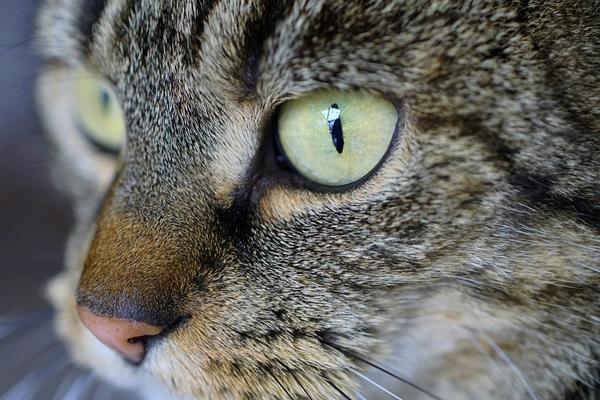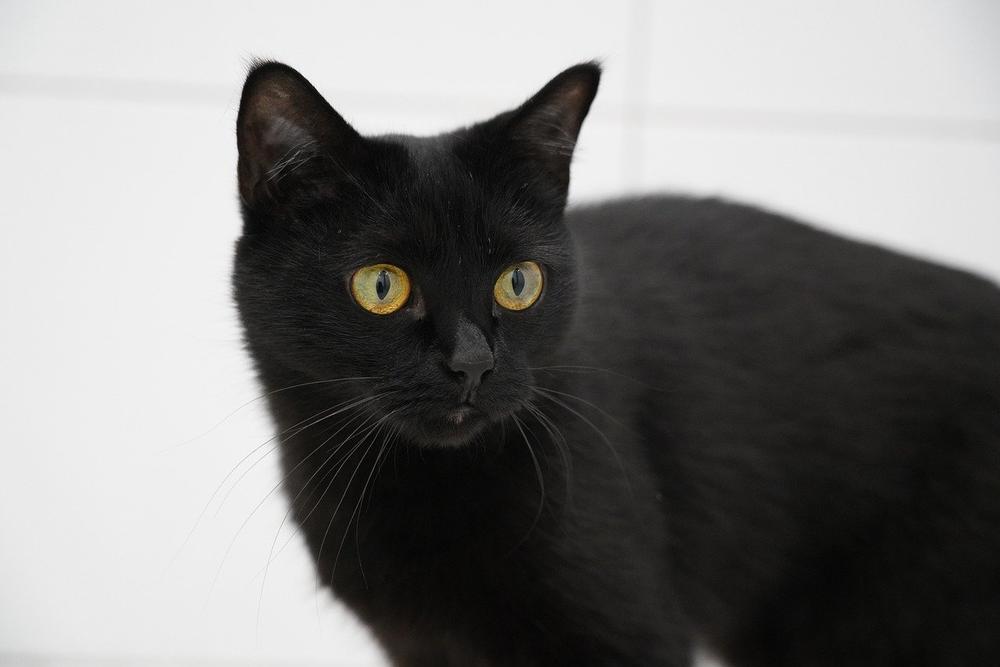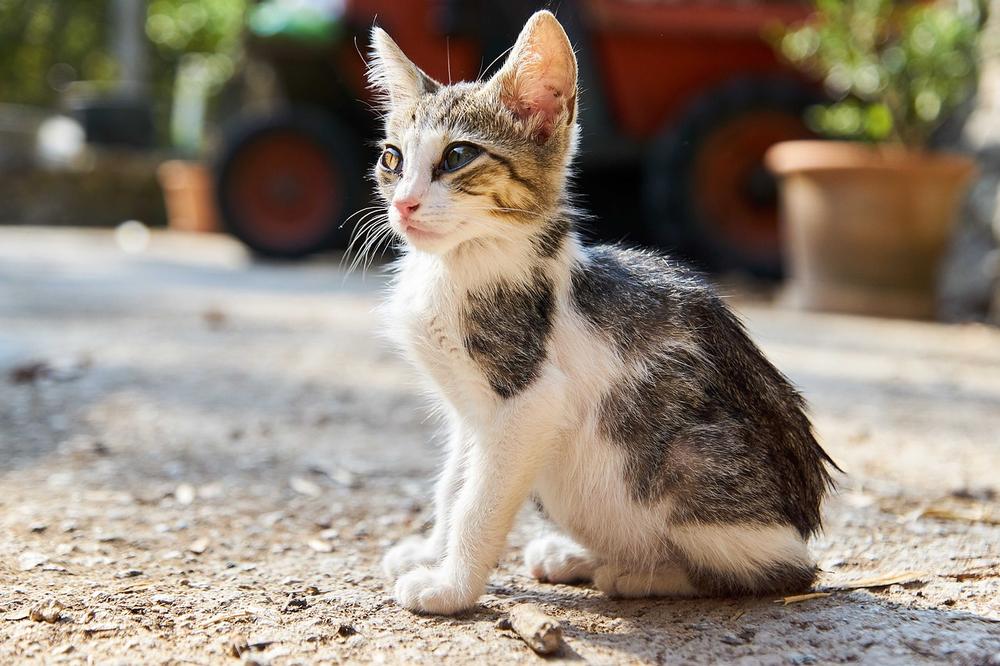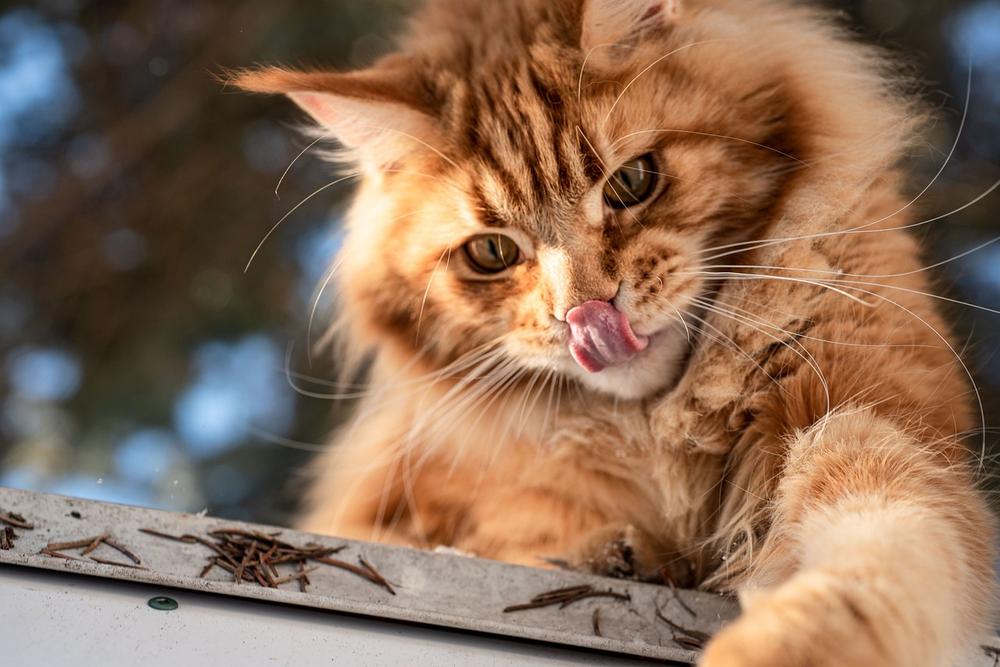How Old Is My Cat in Human Years?

Ever wondered just how old your precious fur ball is in human years?
Are you plagued by the thought that you might not fully understand your cat's aging process? 😺
Worried that you might miss out on crucial information about your feline friend?
It's time to put those concerns to rest and dive into the fascinating world of cat aging.
Let's uncover the truth together, shall we?
Cat Age Calculator: How to Convert Your Cat's Human Age
The myth of cat years equating to human years
So, you know how everyone always says that if you multiply a cat's age by seven, you'll get their human age?
Well, I hate to burst your bubble, but that old saying is completely wrong.
Turns out, the conversion from cat years to human years is a bit more complicated than that.
During a cat's first year of life, they actually age about 15 human years. Yeah, it's crazy...
And by the time they reach their second year, they're roughly equivalent to 24 human years.
It's like catapulting through time on a totally different scale!
Calculating your cat's human age
Now, here's where it gets a bit simpler. If your kitty has already passed the two-year mark, you can calculate their human age a little easier.
For every additional cat year, you can add around four human years.
But bear in mind, there are factors like breed and weight that might throw this off a bit.
To make things even easier for you, I've created a snazzy table (just like those multiplication tables you used in school) so you can quickly figure out your furry friend's human age.
Just be sure to account for any growth spurts they might have had and their physical peak at around two years old.
Keeping your cat healthy
When it comes to considering your cat's age, one crucial aspect you should never forget is their health. Taking care of them means making sure they have a well-balanced diet.
Kind of like us humans, what your feline friend eats plays a huge role in how long and how well they live.
So, be sure to provide them with all the nutrients they need through high-quality cat food and plenty of fresh water. By looking after them properly, you'll ensure they stay your loving companion for many years to come.

Now, this chart is just an estimate based on the average cat.
Your cat's actual human age might vary a bit, so keep that in mind when planning their next birthday party!
Main points I'll expand upon further down this article:
- Cats age more quickly in their early years, but then slow down.
- Indoor cats live longer but may face higher risk of illness.
- Outdoor cats age faster due to their active lifestyles.
- Physical and behavioral signs can give you an idea of your cat's age.
- Cats generally live longer than dogs, with a lifespan of 20-25 years.
- Lifespan can vary depending on genetics, lifestyle, and diet.
- Understanding your cat's age helps you take necessary measures for its well-being.
- Maintain a healthy diet, weight, and regular check-ups with the vet.
- Be aware of potential risks such as cat scratch fever.
- Access high-quality information from sources like The Cat Gallery and International Cat Care.
But wait, there's so much more to know about how your cat ages. Let me fill you in on the concept of cat years and why the simple multiplication factor doesn't quite cut it.
Trust me, you don't want to miss this fascinating insight into your feline friend's aging process...
How Do Cats Age?
Cats age differently from humans and their age is measured in cat years. While it is commonly believed that one cat year equals seven human years, this is not entirely accurate. Cats mature quickly in the beginning, but then age at a slower pace. Each cat ages uniquely, regardless of breed.
Cats age differently than we do, you know.
Cat years give a better idea of their actual age.
They go through stages just like us.
But they mature faster in the beginning.
That 1:7 thing?
Not entirely accurate.
Listen to this...
Sexual maturity and adolescence hit them at 6-10 months.

Quick, right?
Then things slow down a bit.
They still age but at a slower pace.
So one cat year doesn't equal seven human years as everyone claims.
Check this out...
Breeds don't matter much for aging in cats. Unlike dogs, there's not much variation.
You've got this!
I don't buy into these complicated calculations.
Every cat ages uniquely.
Do Indoor and Outdoor Cats Age the Same Way?
| Cat Age | Indoor Cats | Outdoor Cats |
|---|---|---|
| Kitten | Rapid growth and development; high energy levels; focus on socialization and learning. | Rapid growth and development; high energy levels; focus on socialization and learning; exposure to outdoor stimuli and potential risks. |
| Young Adult | Active and playful; still growing but at a slower rate; may show signs of sexual maturity. | Very active and exploratory; continued growth and development; may exhibit signs of territorial behavior. Increased risk of injuries and exposure to environmental hazards. |
| Adult | Settled personality and routine; less playful but still active; prime of health; may experience changes in behavior associated with mating or reproduction. | Physically fit and agile; high energy levels; may display territorial behavior and engage in hunting. Continual exposure to environmental factors which may impact health. |
| Senior | Slowing down and less active; changes in appetite and sleep patterns; increased risk of age-related illnesses such as arthritis and kidney disease. | Decreased activity levels; potential decline in cognitive function; higher susceptibility to age-related illnesses; importance of regular veterinary check-ups. |
Do indoor and outdoor cats age differently?
No, they don't.
But how they spend their days can affect their aging process.
Let's find out more.
Indoor cats live longer than outdoor cats.
Yet, this doesn't mean they're invincible.
Limited exposure to the outside world can make them more vulnerable to illness.
On the flip side, outdoor cats may age faster.
All that hunting and playing in nature takes a toll on their bodies.
Research shows that indoor cats age 4 human years for every cat year, while outdoor cats age twice as fast—8 years per cat year!
That's a huge difference!
Just like young athletes experience more wear and tear due to their active lifestyles, outdoor cats face physical strain. Extreme weather conditions, intense hunting, and other activities contribute to accelerated aging.
So, what does this mean for you and your cat?
Consider the effects of climate, environment, and lifestyle choices on outdoor cats' aging process. Watch out for signs of joint issues or reduced mobility as they get older.
Ensure your cat has access to comfy indoor areas for relaxation and recovery. And lest we forget, regular vet check-ups are vital for any cat's health—indoors or outdoors.
Understanding these different aging trajectories helps you provide the best care for your furry friend.
Keep these factors in mind, and you'll be prepared to support your cat as it grows older.
And now that we understand how indoor and outdoor cats age differently, let's take a closer look at the common signs of aging in cats...
What Are the Signs of a Senior Cat?
As your cat gets older, there are a few things you should pay attention to and take care of.
Here are some practical tips to help you out:
- Your senior cat might not have as much energy as before and may prefer lounging around instead.
- Keep an eye on their weight to make sure they're staying healthy.
- Older cats may start eating less or become picky about their food choices.
- Watch out for any changes in how they chew, bad breath, or trouble eating.
- Joint stiffness can make jumping difficult for them. 😺
- Older cats may have trouble with grooming, so be aware of matting or skin issues.
- They may be more prone to diseases like cancer, arthritis, and kidney problems, so stay alert.
- Digestive issues like vomiting or hairballs can be managed with dietary changes or advice from your vet.
- When trimming their claws, be careful because they can become thicker and more brittle.
- Dental care is important too, so consider appropriate food and regular teeth cleanings.
While these signs can give you an idea of your cat's age, it's always best to consult with a veterinarian for accurate information and the right care for your beloved senior cat.
And before I forget, there's one more thing I wanted to mention.

If you're curious about the fascinating process of how long it takes for a cat to give birth after her water breaks, I highly recommend checking out How Long Does It Take for a Cat to Give Birth After Her Water Breaks.
It's my guide that delves into this intriguing topic and provides all the information you need.
Don't miss out on this valuable resource that will satisfy your inquisitiveness.
Enjoy exploring the wonders of feline pregnancy!
How Long Do Cats Live?
| Cat's Age | Human Equivalent |
|---|---|
| Kitten | Infancy |
| 1 year | Childhood |
| 2 years | Adolescence |
| 3-6 years | Young adulthood |
| 7-10 years | Early maturity |
| 11-14 years | Middle age |
| 15-20 years | Senior age |
| 20+ years | Longevity |
Cats live a long time, longer than dogs usually. Around 12 to 14 years is the average.
But some cats beat the odds and live up to 20 years or more.
That's like a whopping 96 human years!
Let me tell you about some exceptional cats. There's Scooter, who celebrated his 38th birthday before crossing over the rainbow bridge.
And in the UK, there's a cat named Rubble who has seen an impressive 27 years come and go.
Genetics play a big role in how long your cat will be with you. Some breeds have shorter lifespans, like Maine Coons and Bengals who typically live for 10 to 15 years.
British Shorthairs and Ragdolls, on the other hand, can keep on purring for close to two decades.
What your cat eats also matters.
A healthy diet can make all the difference in their lifespan.
Surprisingly, lifestyle choices matter too.
Even cats have preferred lifestyles.
If your furball enjoys a blissful indoor life, they'll be less likely to run into accidents outside that could cut their time with us short.
Taking proactive measures like Cat Care for Life helps keep our feline friends happy and healthy.
So if you have a cat, treasure every moment with them.
Because let's be honest, they're here to stay for a good long while.
Who can complain about years of cat snuggles and purrs?
Certainly not me!
And now, let me explain how determining your cat's age can help you ensure their well-being and longevity!
Why Is Understanding My Cat’s Age Important?
Determining your cat's age is crucial for proper nutrition and dietary needs.
Age assessment helps you take the necessary steps for your furry friend's well-being.
Maintaining a healthy diet, weight, and regular check-ups with the vet aid in ensuring a long and healthy life for your feline companion.

Beyond that, understanding potential risks, like the dreaded cat scratch fever, can prevent serious diseases from attacking their lymph nodes.
You play a vital role in your cat's health.
By staying informed and proactive, you provide the best care possible for your beloved pet.
Stay vigilant, and keep those purrs coming.
And that wraps up today's article.
If you wish to read more of my useful articles, I recommend you check out some of these: For How Long Does Your Cat Need to Wear a Cone, White Cat Poop, Black Cat Turning Brown, Do Cats Shed More in the Summer, and How Long Can Cats Hold Their Pee
Talk soon,
-Sarah Davis